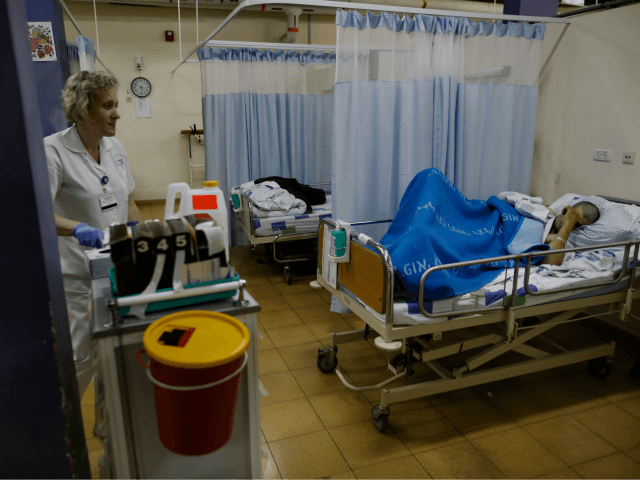TEL AVIV – Five critically ill Gazan women who are relatives of Hamas members must be given permits to enter Israel to receive urgent medical treatment, Israel’s Supreme Court has ruled, despite a government motion passed last year that forbids Hamas relatives from entering Israel for medical purposes.
The women appealed to the court last month after their initial request was rejected.
On Sunday, the court ruled that the government ban on entry for health care to relatives of Hamas members was not legal, Ynet news reported.
The security cabinet’s decision is part of an effort to put pressure on the Gaza-ruling terror group to release the bodies of two IDF soldiers being held there as well as two other Israeli citizens.
Human rights groups slammed the government for using the women as “bargaining chips,” the report said.
The NGOs Gisha, Al Mezan, Adalah, and Physicians for Human Rights Israel filed a petition on July 29 on behalf of the women. The petition was unanimously accepted by Supreme Court Justices Uzi Fogelman, Isaac Amit, and Ofer Grosskopf.
According to a statement released by Adalah-The Legal Center for Arab Minority Rights in Israel, denying Gaza patients access to medical treatment as an anti-Hamas tactic was both ineffective and illegal.
“Basing the decision on a relative’s prohibited activity, with no suggestion that the patient herself is involved in or even aware of the activity, is contrary to the basic principles to which we are committed,” Fogelman, the lead justice in the case, said.
The four human rights NGOs responded to the decision in a joint statement.
“We welcome the Israeli Supreme Court’s decision to allow five critically-ill women — most of whom are suffering from cancer — to exit the Gaza Strip for life-saving medical care,” they said. “However, it is most regrettable that it required three Supreme Court justices to raise a black flag over a policy,” which the organizations described as “clearly cruel and illegal.”

COMMENTS
Please let us know if you're having issues with commenting.